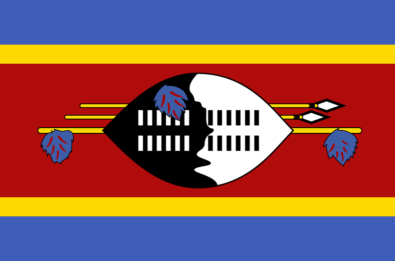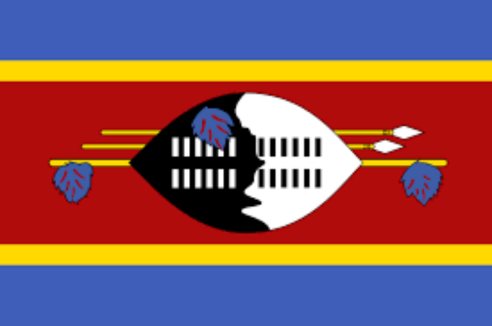Eswatini
Eswatini


The Kingdom of Eswatini (previously Swaziland) is a landlocked nation in Southern Africa. Eswatini’s history is intriguing and one of a kind due to the country’s rich cultural heritage and its close relationship with its monarchy. The fascinating history of Eswatini is examined in this essay, from its earliest days to the pivotal events that have created the country today.
The Origins of the Swazi Kingdom and Its Early Development
Present-day Eswatini has a history of human habitation dating back to the Stone Age. Bantu-speaking peoples flooded into the area, settled down, and began farming and herding cattle.
The entrance of the Dlamini family in the middle of the 18th century was a watershed moment in Eswatini’s history. The Swazi Kingdom was founded by the Dlamini family, commanded by Ngwane III. This event signaled the birth of a dynasty that would rule Eswatini for centuries.
Resistance to Colonialism and the War for Independence
European colonial powers exerted growing pressure on Eswatini in the late 19th century as they sought to increase their sway in Africa. There were significant shifts in the country’s social and political climate during the times when it was ruled by the British and the Boers.
The monarchy of British-controlled Eswatini was severely weakened when the country was designated a British Protectorate in 1903. Traditional Swazi rulers’ power was weakened, although they maintained some sway over the population.
As decolonization raced over Africa in the middle of the 20th century, so did calls for independence in Eswatini. The fight for independence gathered steam, and political parties were formed to promote it.
Freedom and Contemporary Eswatini
Eswatini declared its independence from British colonial authority on September 6, 1968. Prince Makhosini Dlamini, the nation’s first prime minister, was instrumental in guiding the country to its independence. Until his death in 1982, King Sobhuza II of Eswatini presided over the country as king.
Eswatini has struggled in recent decades with issues of leadership, democracy, and social and economic progress. Demands for better living circumstances and economic possibilities have developed alongside calls for political changes and more representation.
The monarchy and the traditions of the people of Eswatini play significant roles in the country’s history. The people of Eswatini have shown remarkable fortitude and ambition throughout the country’s history, from the founding of the Swazi Kingdom through the fight for independence and the challenges of the contemporary period.
Sikhatsi, Mlilo, Sihlangu, Libhuku, Umuti, Tindzaba, Sidvwabangwe, Mthombo, Tinkhundla, Sibhaca, Nkhomba, Sive, Sifundza, Sicabucabu, Sihlalo, Sitsatsi, Sihlahla, Ligcagca, Tinhlanhla, Likhomba, Siphatsi, Sibuyayo, Bompatsatsi, Tinkhundla, Siyinqaba, Lilandzelako, Sidvokodvo, Kuhle, Sitsi, Lisikhatsi, Simunye, Likhonkco, Sikhukhula, Liligcobile, Sibonelelo, Lisakhe, Ligcina, Sisuka, Likhohlo, Lilibuko, Siyinqaba, Lesikhatsi, Lomnikelo, Sifundza, Simelane, Sihlangu, Libhongo, Sikhumbuzo, Siphakamiso, Sibhaca, Sithandwa, Sindzawonye, Siyinqaba, Sikhatsi, Mlilo, Sihlangu, Libhuku, Umuti, Tindzaba, Sidvwabangwe, Mthombo, Tinkhundla, Sibhaca, Nkhomba, Sive, Sifundza, Sicabucabu, Sihlalo, Sitsatsi, Sihlahla, Ligcagca, Tinhlanhla, Likhomba, Siphatsi, Sibuyayo, Bompatsatsi, Tinkhundla, Siyinqaba, Lilandzelako, Sidvokodvo, Kuhle, Sitsi, Lisikhatsi, Simunye, Likhonkco, Sikhukhula, Liligcobile, Sibonelelo, Lisakhe, Ligcina, Sisuka, Likhohlo, Lilibuko, Siyinqaba, Lesikhatsi, Lomnikelo, Sifundza, Simelane, Sihlangu, Libhongo, Sikhumbuzo, Siphakamiso, Sibhaca, Sithandwa, Sindzawonye, Siyinqaba, Emalangeni, Kukhula, Bakhona, Gcina, Ngena, Ulinga, Sifundza, Tibandza, Lingashoni, Sikhumbuzo, Kutsi, Siyintfombi, Lesikhatsi, Lizaliswa, Sicabucabu, Siphakamiso, Sicela, Siphila, Bantfu, Lifundziso, Kuncitshe, Libandla, Ngena, Ligcina, Kuthi, Sikhatsi, Siphiwe, Sitsatsi, Siyinqaba, Gcinile, Emkhatsini, Sibonga, Simnandzi, Siswati, Sifunda, Simanga, Libandla, Sifundza, Lidvuba, Sifisa, Simelane, Sisimuka, Kukhula, Ngena, Sithandwa, and Siyintfomb

-

 States2 weeks ago
States2 weeks agoPearlie Golden 93-Year-Old Black Woman Shot By Texas Cop
-

 States2 weeks ago
States2 weeks agoTragedy Unveils Racial Tensions Tarika Wilson Story
-

 States2 weeks ago
States2 weeks agoLayers Of Racial Tension The Mario Woods Tragedy And San Francisco Path To Justice
-

 States2 weeks ago
States2 weeks agoLynching Of Thomas Shipp Tragedy Of Racism Echoes Through History
-

 States2 weeks ago
States2 weeks agoThe Killing Of Terence Crutcher And The Fight For Racial Justice

















You must be logged in to post a comment Login